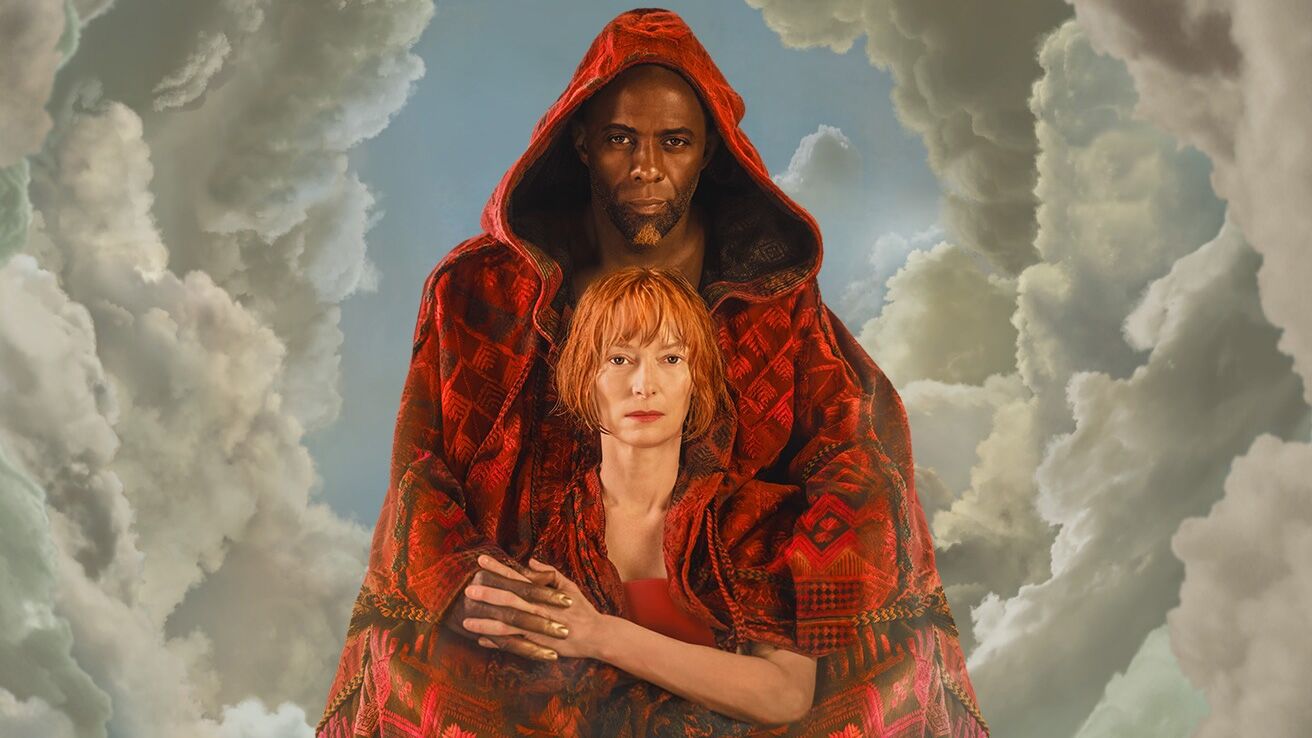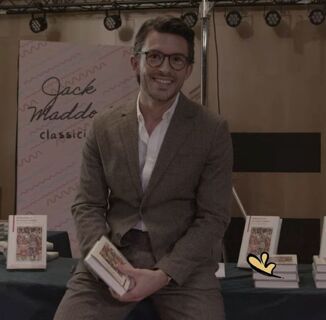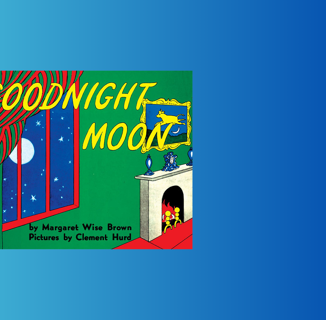Close your eyes. Now imagine a giant Idris Elba telling you stories in his mellifluous voice. Now open your eyes. He’s there, offering to make three wishes of yours come true. Now if this isn’t heaven, I don’t know what is. It’s also the premise of Three Thousand Years of Longing.
Tilda Swinton’s Dr. Alithea Binnie, an academic on a trip to Istanbul, encounters Elba’s otherworldly Djinn when she frees him from thousands of years of imprisonment in a small bottle. What follows is a battle of wills between a knowledgeable skeptic and a resourceful spirit who loves to a tall tale. She suspects that the granting of wishes has a price she’s not willing to pay. To convince her it doesn’t, he tells stories of how he got into the predicament he’s in and why.
This premise pays homage to the Arabian folklore tales of One Thousand and One Nights. In those tales, an Arabian king who’s been betrayed by his wife marries someone new every night. In the morning, he kills them so they don’t have the chance to betray him again. Skillful Scheherazade is his latest wife. To avoid getting killed, she starts telling him a story every night. But she doesn’t tell him the ending, always guaranteeing herself another night alive.
She continues to do this for a thousand and one nights, and during this period their relationship grows as they get to know each other. Additionally, the tales that she tells him are stories of love, heroism, and good triumphing over evil.
Here, the genders are reversed: Elba is our Scheherazade whose ability to tell a story well keeps Swinton’s interest. Eventually, of course, she falls in love with him, as did the king with Scheherazade.
In adapting the short story “The Djinn in the Nightingale’s Eye” by Booker prize-winning author A.S. Byatt, director George Miller (Mad Max: Fury Road) and co-writer Augusta Gore show enthusiastic admiration for the art of conversation. The film is just two people in a room talking. It cuts away often to visualize the tales Elba is telling, but mostly it’s the words uttered by the two characters to each other that are supposed to keep the audience enthralled.
The tales the Djinn tells are full of love, desire and yes that longing of the title. They are about lovers coming together fervently and getting separated violently. So rich in detail, so full of passion, they are supposed to pop off the screen and into the imagination. And they do, intermittently. There’s palpable chemistry between Elba and Swinton. Elba imbues every word his character says with the wise conviction of an otherworldly being that has lived for centuries. Swinton hangs on to every word he says and registers Alithea’s journey from being “adequately happy alone” to falling in love and desiring a companion and physical intimacy. Her face becomes a reflection of desire as she gazes at Elba.
The problem with taking centuries-old tall tales and visualizing them is that no matter how grand you go, there’s a limit. What Miller conjures with the aid of his crafts team is admirable. However, ancient mythology can’t be contained in a two-hour movie, nor envisioned on a soundstage and adequately captured by cameras. The task was impossible to begin with.
But what’s endearing about his movie is the earnestness by which it comes about. All of the visual elements might not have worked, and some of the stories are more interesting than others. But Miller and company are committed. There’s love for these stories, and for the art of storytelling itself. That shines through beautifully, making Three Thousand Years of Longing an enjoyable ride.♦
Help make sure LGBTQ+ stories are being told...
We can't rely on mainstream media to tell our stories. That's why we don't lock our articles behind a paywall. Will you support our mission with a contribution today?
Cancel anytime · Proudly LGBTQ+ owned and operated
Read More in Entertainment
The Latest on INTO
Subscribe to get a twice-weekly dose of queer news, updates, and insights from the INTO team.
in Your Inbox















